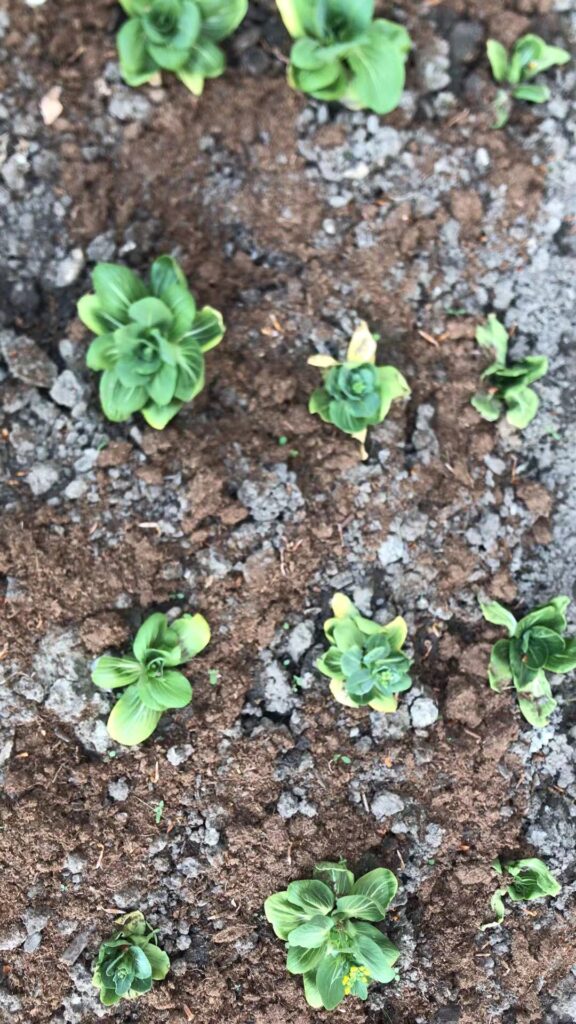
My Shanghai Bokchoi leaves are turning yellowing .
What might cause the problem?
Thank you for contacting the Toronto Master Gardeners regarding yellowing leaves on your Bok Choy plants.
Bok Choy is in the same plant family as broccoli and cabbage (Brassicaceae). Bok choy is a cool season vegetable, meaning that it thrives best in cooler temperatures and can bolt (flower and go to seed) in hot weather. As a result, Bok Choy is often planted in spring for an early summer harvest, when conditions tend to be cooler and wetter.
Yellow leaves can be as a result of downy mildew, a parasitic organism related to algae, that thrives in damp conditions. From your photograph, the yellow leaves appear to be those closest to the ground. Downy mildew can be identified as pale yellow spots or colouration on the upper leaf surface and brown/grey fuzz on the underside. If downy mildew is your problem, reducing moisture on the plants will help. Water from below, trying not to soak the leaves. You can also use straw or shredded bark to mulch around the plants, which will help to keep the soil moist but leaves dry. Downy mildew can overwinter in the soil so if your growing space allows, try not to plant it in the same place each year and don’t plant it where broccoli or other Brassica vegetables were planted the year before. Clean up plant debris and dispose in the garbage, not the compost. This will help prevent downy mildew from infecting other plants. Warmer weather will also help to decrease the chance of infection with downy mildew, but that can also have the unfavourable consequence of shortening the season for Bok Choy. This Ontario government site provides more information about diseases and pests that can impact Bok Choy plant diseases
Too much water, too little water and insufficient soil nutrients can also cause leaf yellowing. Bok Choy plants are ‘heavy feeders’, meaning that they use lots of nutrients in the soil to thrive. An application of compost or organic vegetable fertilizer or altering your watering patterns may also help depending on your current practice. This University of Minnesota site offers information about best practices for growing Bok Choy University of Minnesota
Best of luck with your Bok Choy plants!

